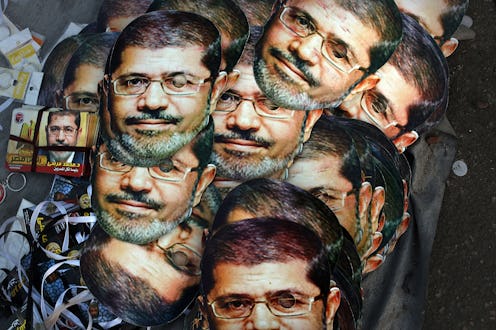News
U.S. to Meet With Egypt's Interim Government
As the unrest continues in Egypt, U.S. Secretary of State William Burns has been sent to Cairo— the first senior U.S. official to visit the country since Morsi's ouster. Burns held high-level talks with the interim government Monday, reiterating Washington's emphasis on non-violence and the importance of democratic elections.
Burns called on Egypt's military to avoid politically motivated arrests.
This move comes as Egypt's interim leaders began swearing in a new cabinet on Sunday. So far, Nobel Laureate Mohamed El-Baradei has become interim vice president of foreign relations, and Nabil Fahmy—former Egyptian ambassador to the U.S.— has been given the post of foreign minister.
Ex-President Morsi's Muslim Brotherhood has refused to join the new government, however, as has Egypt's super-conservative Salafi al-Nour party.
Meanwhile, more deaths were reported in the region of northern Sinai, when militants attacked a bus carrying factory workers, killing three and injuring fourteen others.
Further demonstrations are expected in Cairo on Monday in response to Burns' visit, by both pro-Morsi and anti-Morsi protesters.If the general attitude towards the current American ambassador —whose portraits have been scrawled over with the words, "Go home, witch"—is anything to go by, Burns' welcome may be less than warm.
Already, the Islamist Nour Party and the Tamarrod movement have turned down invitations to meet Burns.
"[The U.S.] must apologize for their support for the Muslim Brotherhood's party and terrorism. Then we can think about it," the Tamarrod leader told Reuters.
The unrest in Egypt began when President Mohamed Morsi was removed from his office by the military and replaced by interim leader Adli Mansour, following nationwide protests calling for Morsi's resignation.
So far, the U.S. has been very careful about not calling the army's actions "a coup," because doing so would legally require Washington to suspend its foreign aid. The U.S. has, however, criticized the region's growing violence and called a halt to the army's "arbitrary" arrests of Muslim Brotherhood members. Recently, Egypt's public prosecutor ordered the assets of several Brotherhood members to be frozen.
Burns, who speaks Arabic and has written a book about the U.S.'s policy toward Egypt, will be in the country until Tuesday.
